The UP ARO/RO (Assistant Review Officer/Review Officer) Exam conducted by UPPSC is one of the most competitive exams in Uttar Pradesh. Many aspirants make the mistake of preparing separately for Prelims and Mains, but a smarter way is to adopt a combined strategy from the beginning. Since both stages overlap in syllabus and approach, integrated preparation saves time, avoids duplication, and builds strong conceptual clarity.
In this guide, we’ll cover:
1. Exam Pattern Overview
Prelims
Mains
Thus, Prelims tests breadth of knowledge (factual + objective), while Mains tests depth (analytical + writing).
2. Why Combined Strategy is Better
3. Subject-Wise Strategy
a. History & Culture
b. Polity
c. Geography & Environment
d. Economy
e. Science & Technology
f. Hindi & Essay
g. Current Affairs
4. Study Plan & Time Management
Daily Routine Example:
Weekly:
5. Sources & Best Books
6. Role of Current Affairs
7. Practice & Revision Techniques
8. Common Mistakes to Avoid
9. Final Tips for Success
Stay consistent, revise regularly, and take mock tests seriously.
Give equal attention to Hindi and Essay – often the game-changers.
Keep practicing MCQs + descriptive answers parallelly.
Balance factual learning (Prelims) with analytical depth (Mains).
Start integrated preparation from day one.
Neglecting UP-specific content.
Collecting too many books/sources.
Not revising regularly.
Ignoring answer writing until after Prelims.
Focusing only on Prelims first.
Use flowcharts, diagrams, and maps for better presentation.
Revise weekly & monthly using short notes.
Mains: Write at least 1–2 answers daily.
Prelims: Attempt 50–100 MCQs daily.
Connect CA with static syllabus.
Revise government schemes, international events, UP-specific issues.
Make monthly notes.
Cover last 1 year comprehensively.
Yojana, Kurukshetra, PIB, UP Special magazines
Arihant/Hindi Grammar books for ARO/RO
Oxford/Orient BlackSwan Atlas – Geography
Ramesh Singh – Economy
Spectrum – Modern History
Laxmikanth – Polity
NCERT (6–12) – All subjects
1 essay practice
1 Mains answer writing session
1 full-length Prelims test
1 hr: MCQ Practice (Prelims style)
1 hr: Answer Writing Practice (Mains style)
1 hr: Hindi Grammar/Essay
2 hrs: Current Affairs + Notes making
3 hrs: GS Core (History, Polity, Economy, etc.)
Mains: Analytical questions (impact, challenges, solutions).
Prelims: Direct factual Qs (schemes, events).
The Hindu, Indian Express, PIB, Yojana, UP-specific newspapers.
Integrated prep ensures you cover both factual grammar (Prelims) and writing skills (Mains).
Essay: Practice weekly essays on current and social issues.
Hindi Grammar: Vyakaran, Sandhi, Samas, Muhavare.
Mains: Impact of tech on governance, society, agriculture.
Prelims: Facts, definitions, applications.
General science NCERTs, current science issues.
Mains: Policy analysis, role of economy in UP development.
Prelims: GDP trends, schemes, facts.
NCERT basics, Ramesh Singh, Budget & Economic Survey.
Mains: Human geography, environmental challenges, resource management.
Prelims: Locations, rivers, climate, maps.
NCERTs, Atlas, UP special geography.
Write short notes for revision.
Mains: Critical analysis of policies, role of institutions.
Prelims: Articles, amendments, committees.
Laxmikanth (Constitution + Governance).
Practice writing answers on freedom struggle, cultural heritage, UP’s historical importance.
For Mains: Causes, consequences, analysis.
For Prelims: Dates, facts, personalities.
NCERTs (6–12), spectrum, UP special history.
Prelims success is only useful if you are already Mains-ready.
Early answer-writing practice helps improve Mains performance.
A strong foundation built during Prelims directly benefits Mains.
Preparing separately wastes time.
70–80% of the syllabus overlaps.
Focus: Analytical writing, presentation, in-depth knowledge.
General Studies, General Hindi, Essay, and subject-specific sections.
Conventional descriptive papers.
Focus: Current affairs, history, polity, geography, economics, general science, Hindi grammar.
General Studies (GS): Objective type, multiple-choice questions.
Final Tips for Success
Common Mistakes to Avoid
Practice & Revision Techniques
Role of Current Affairs
Sources & Best Books
Study Plan & Time Management
Subject-wise Strategy for Prelims & Mains Together
Why a Combined Strategy is Better
Exam Pattern Overview (Prelims + Mains)

Lakshya IAS
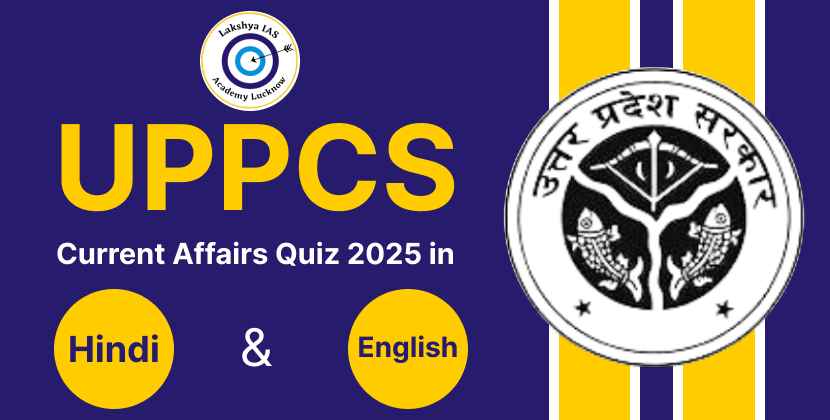
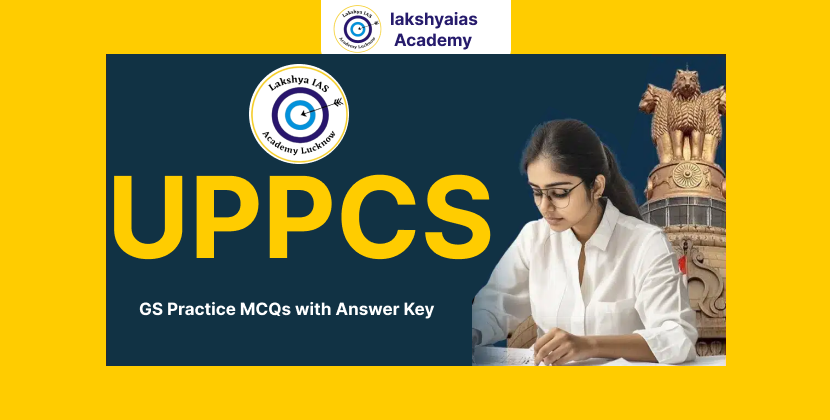
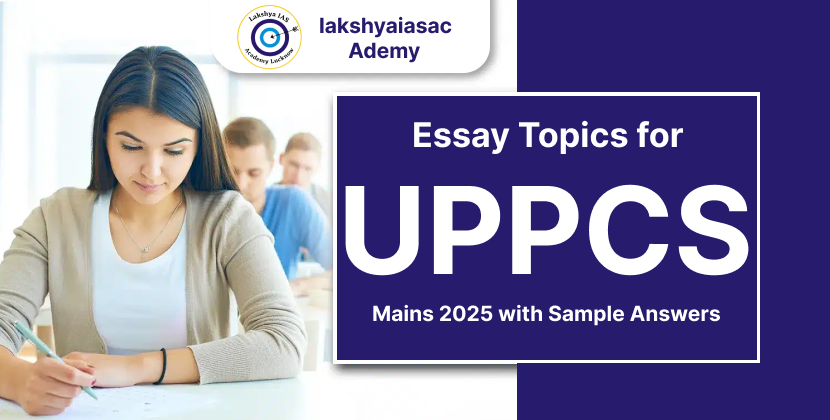
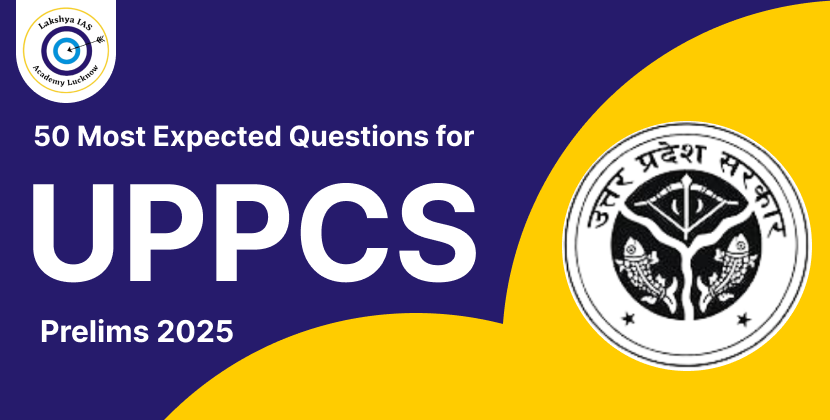
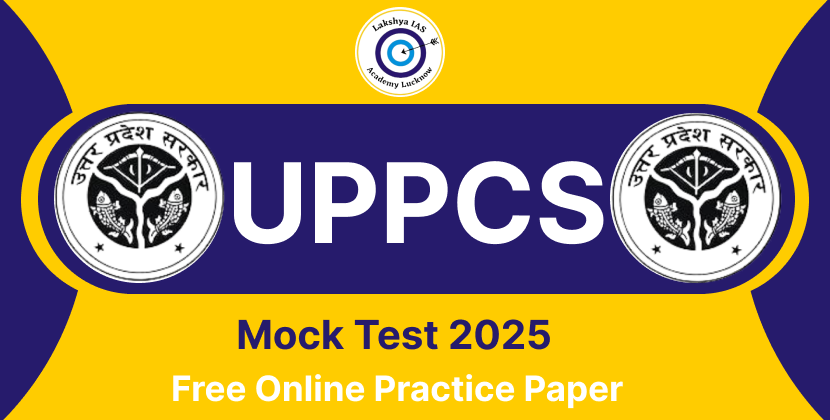
.png)
.png)
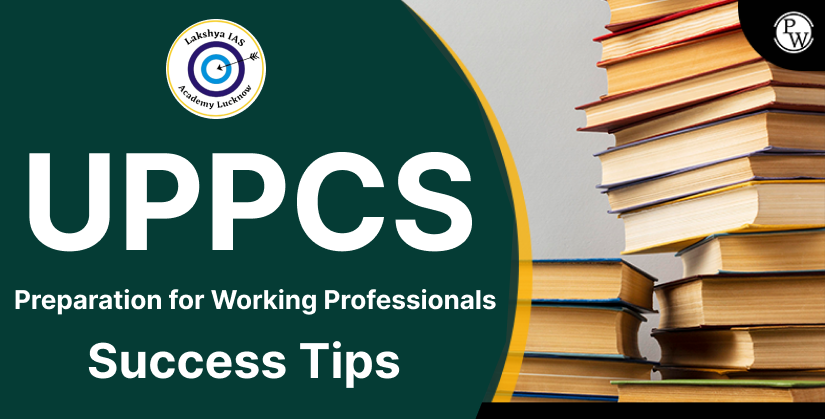
.png)
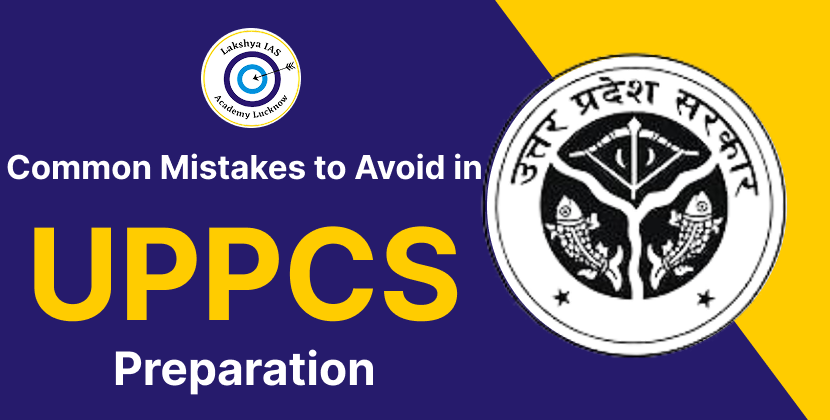
Leave a Comment